Finding the best laundry detergent is easy. Do you consider freshly-laundered clothes perfume? Buy a scented detergent. Do abrasive soaps irritate your skin? Keep sensitive skin soap on hand. Worried about using chemicals to wash clothes? Choose safe detergents. All of this is great, but it doesn’t address the most important washing decision: powder, liquid, or pod detergent.
Best detergent? Powder, pods, or liquid detergent? It depends on your demands. Powder is cheap, durable, waste-free, and great for dirty clothes. Liquid detergents work well in cold water, may be used as spot treatments, and are easier to quantify. Pods are easy to use, portable, and clean. How you use detergents matters. Using laundry pods, fabric softener, and sorting clothes all have specific instructions. Here, we list the pros and cons of each laundry detergent so you can choose the best and perform it effectively.
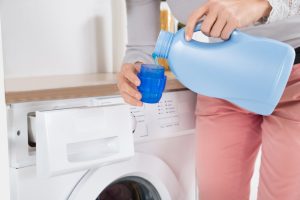
Laundry detergent Powder
Pros:
It is Cleaner than liquid, Cheaper than liquid or capsules. Shelf-stable, so it lasts longer than liquid or pods. Greener packaging. Customizable powder load. Lighter than liquids. Works effectively on highly stained sports outfits.
Cons:
Some powder detergents might leave residue on garments if used in cooler water. Pretreats garments, however, you must form the paste or dissolve this beforehand, adding an extra step. Drying out. Unlike pods, messy.
Laundry Liquid Detergent
Pros:
There is no risk of residue since the detergent has already dissolved. Powder detergent dissolves more easily in cold water than liquid detergent. Many stains may be treated with this solution, eliminating the need for additional products. Measuring with the hat is a breeze. Hand washing of clothes is possible with this device. Grease and Oil stains may be effectively cleaned using this product.
Cons:
Messy in certain cases. Often bulky and heavy. Toxic to the environment since it produces more plastic garbage. In order to avoid over-dosing on detergent, this product pours fast
laundry detergent powder
Rather than employing the metal fatty acid salts found in soaps, detergent powders utilize a synthetic surfactant instead. They are also marketed as laundry powder, hard surface cleaners, etc. since they are made in powder form. Soap is a common element in most powder detergents, however, it is more of a foam regulator than just a surfactant.
Soap may be created in a batch or continuous process, which is how most detergent powders are produced. Some of the more common ingredients used in these products include surfactants and other cleaning agents, optical brighteners and chelating agents, detergent building blocks, fabric softening agents and enzymes. Filth, dirt, grease, oil, and other environmental contaminants may be easily removed using detergent powders since they are simple to apply. Hand and machine washing are both possible uses for detergent granules.
Surfactants, optical brighteners, detergent builders, fabric softeners, enzymes, synthetic perfumes, bleaches and compounds, scents, and more are all frequent constituents in powder detergents. It is essential that you choose a laundry cleaning solution that is appropriate for your clothing and wash procedure if you want to get good cleaning results. Laundry detergents come in a variety of forms, each designed for a specific purpose. So be sure to study the ingredients list to determine the intended use of a certain product.

Dry-cleaning is the only option for some types of clothing that need particular attention. To get the best results, dry cleaning should be used. In addition to the right water temperature, another key laundry cleaning advice is to be aware of it. For the vast majority of the time, hot water is best, but not all clothing could be laundered in hot water. In general, hot water is ideal for whites and linens, while cool water is better for colorful or multicolored materials, that might shrink or wrinkle. Always pre-treat stains before washing garments for best results.
best powder laundry detergent
If you use the finest laundry detergent powder, you may be able to assist washing machines to work more efficiently and get rid of stains without altering the color or texture of the cloth. Take into mind these factors before selecting a detergent for your washing machine.
The vast majority of detergents include high-efficiency (HE) detergents, which are efficient with just a little amount of water. Cold water detergents cleanse without hot water. Organic detergent is kind to the fabric it’s washing. According to the manufacturers, you should: Always use the washing powder that is advised by the manufacturer. It has qualities that are complementary to those of the washer. Choose a detergent that can eliminate stains without the need for prewashing or pretreating the fabric. When washing garments, use gentle detergents so that the fabric may retain its gloss, color, and texture. More money is paid for more expensive detergents, and vice versa. Choose washing powders with a lower serving size. The use of the best detergent helps the cleanliness of the washing machine. Choose an appropriate washing detergent.
Surf Excel Matic performs throughout high-water levels and dissolves without leaving residue. The detergent maker uses advanced machine-washing technology. The recommended washing powder removes stains quickly.
Rin washing powder seems to be all and leaves no residue on clothes. The easy-to-dissolve formula penetrates well and removes stains quickly. Washing powder freshens clothes.
Full-automatic Ariel Maticis. Modern Bright Guard Technology keeps clothes bright after multiple washes. It leaves a lengthy soothing aroma and removes stubborn stains.
This top-load detergent powder is germ-killing. Tri-Action Next Generation resists food stains and prevents color fading. This washing powder brightens and freshens clothes.
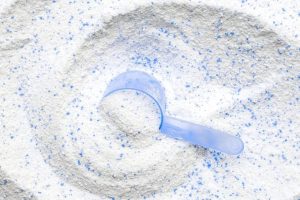
is powder or liquid detergent better for the environment
Using the best laundry detergent powder may help washing machines function better and remove stains without affecting the color or texture of the material. Prior to purchasing a detergent for your washing machine, consider the following factors:
There are several high-efficiency (HE) detergents, which use very little water to clean effectively. Detergents for use in cold water remove dirt and grime without the need of hot water. When using organic detergent, you don’t have to worry about damaging the clothes you’re washing. Always use the washing powder that the manufacturer recommends, say the makers. It complements the washing machine in many ways. The cloth should not be prewashed or treated before using the detergent. Avoid harsh detergents when washing clothes to preserve their shine, color, and texture. As detergent prices rise, so does consumer spending. Reduce the amount of washing powder you use by looking for products with smaller serving sizes. The washing machine stays cleaner longer when the finest detergent is used. Pick a good laundry detergent.
When it came to finding the best effective, but eco-friendly, laundry detergents, our expert tester tested a broad range of environmentally friendly products, including both biodegradable and non-biodegradable options. Their top eight picks are as follows:
BIO Ecover Condensed Laundry Detergent is our selection for the title of the best environmentally friendly and biodegradable laundry detergent on the market. Taking second place is Method Concentrated Detergent.
For packing, Seventh Generation Ultra Strong Bio Laundry Detergent is your best option.
Biological Liquid Detergent NON-BIO is the greatest value for your money.
Splosh Non-Bio Laundry Detergent is the best environmentally friendly non-bio washing detergent.
Smol Non-Bio Capsules are the most eco-friendly washing capsule.
In terms of packaging, BioD Intense Non-Bio Laundry Detergent is the most ecologically friendly solution.
For people with sensitive skin, M&S Lightly Does It Delicate Non-Bio Laundry Liquid is the best alternative.
cold water powder laundry detergent
Kay Gebhardt, a qualified chemist, and senior scientist believes that “the idea that hot water cleans greater than cold water derives from the way we handle laundry ages ago.” Because detergents and equipment were less effective at that time, “heat was advantageous because it speeded up the cleaning process.”
Water and detergents must be studied in order to understand this better. Because of the higher kinetic energy of hot water compared to cold water, water molecules travel more swiftly. Because of their higher energy, these molecules may more swiftly agitate the surfactants (water-averse molecules that grasp dirt and transfer it off your clothing like kids dashing from a wave on the beach) when they react with the surfactants in traditional detergents, sloughing away stains faster.
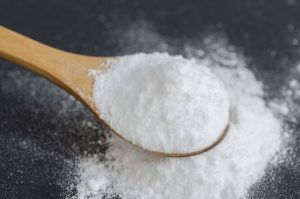
If you were doing laundry by hand, heating water made the process a little less tedious; when electric washing machines first were developed about 1905 they required hot water to “activate” basic detergents. Because the devices required hot water, they were prohibitively costly to run.
Due to advances in technology, contemporary laundry detergents can be used in cold water. Cold water-resistant enzymes are used in new detergents, explains Gebhardt. To remove stains from clothes without using hot water, “the soils are actually split up and the surfactants are able to transport the spots off the garment.” Cold water cleansers are just as effective as hot water detergents, yet they consume just a part of the energy.
Using cold water for laundry has advantages beyond saving money and the environment. When it comes to stains, hot water may actually set protein-based stains like blood into the fabric, whereas cold water is considerably gentler on fabrics.
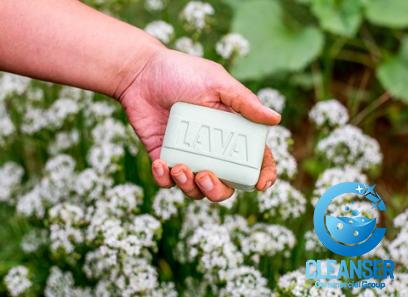
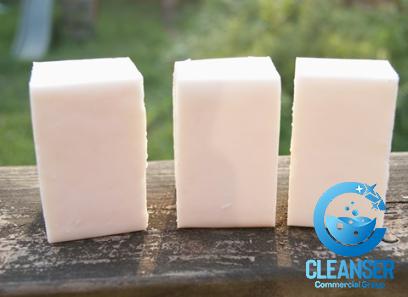
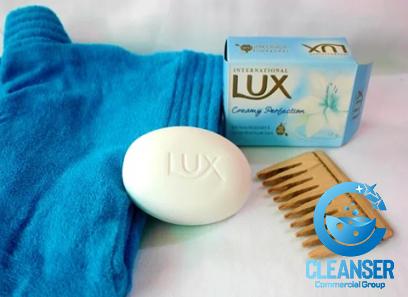
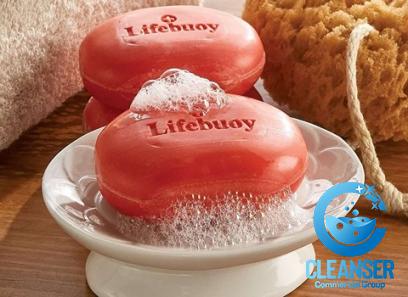
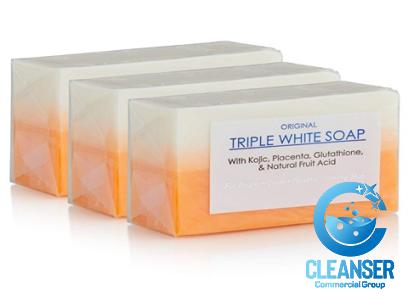
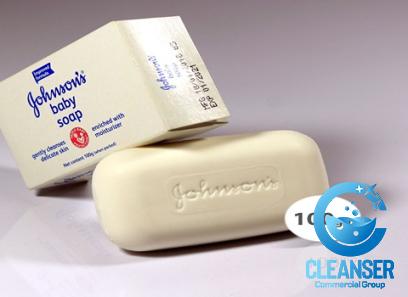
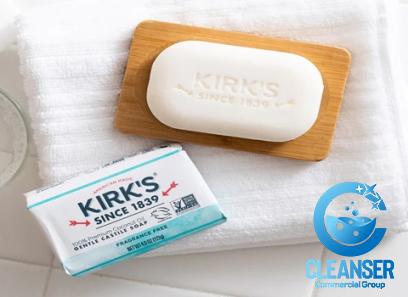
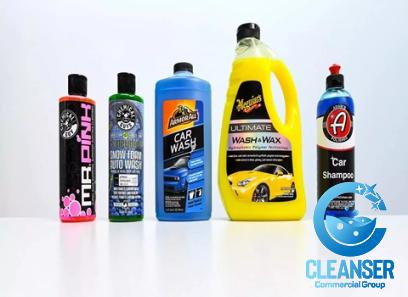
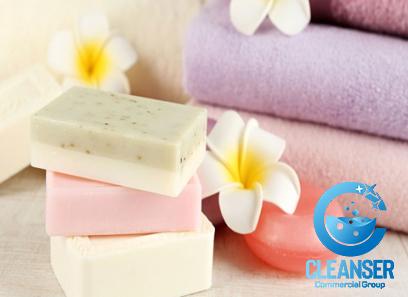
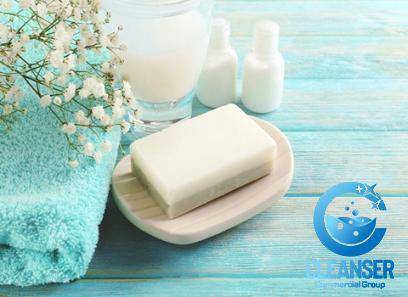
Your comment submitted.